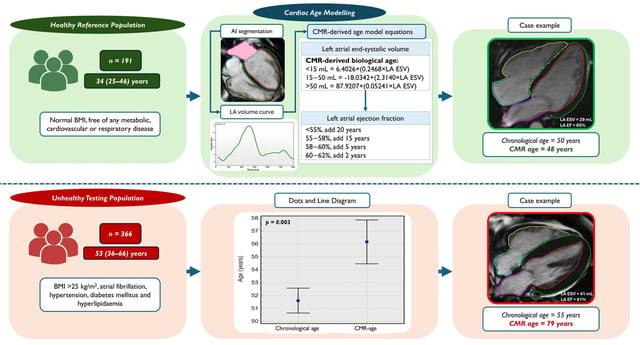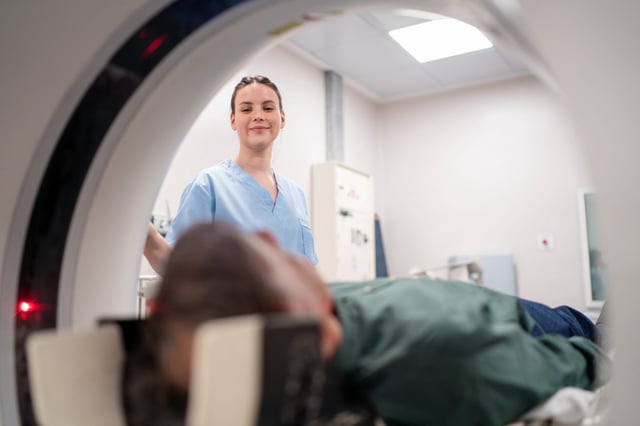Overview
- Scientists at the University of East Anglia have developed a method using MRI scans to calculate a heart's 'functional age,' distinct from chronological age.
- The study, published in the European Heart Journal Open, analyzed scans from 557 individuals, comparing healthy hearts to those with conditions like obesity, diabetes, and hypertension.
- Findings show that patients with these conditions often have hearts that function as significantly older than their actual age, sometimes by decades.
- Researchers propose incorporating this heart age metric into routine cardiac MRI protocols to improve early detection and prevention of cardiovascular disease.
- The technique is described as a potential 'game-changer,' offering doctors a tool to motivate patients toward healthier lifestyles and more effective disease management.

